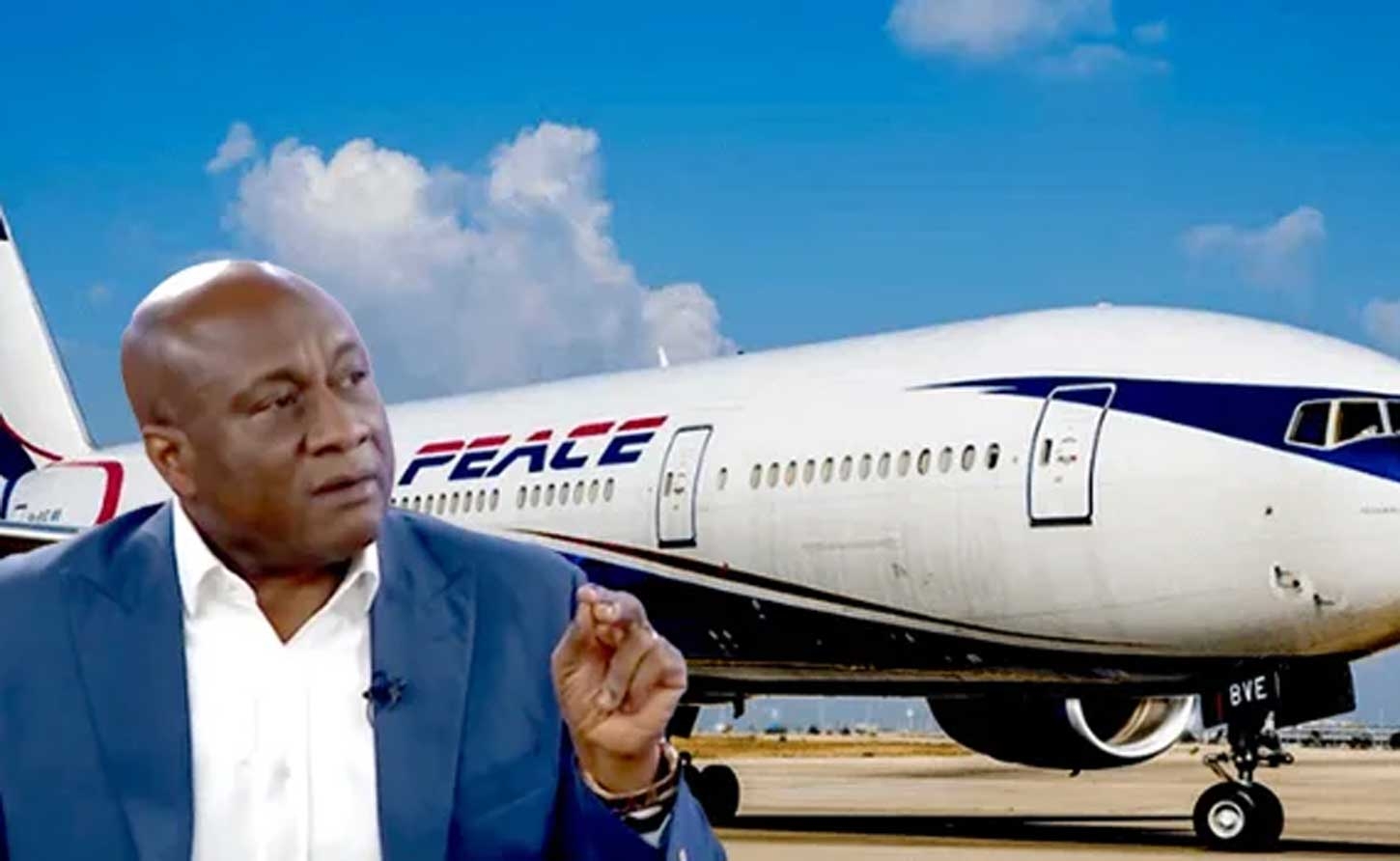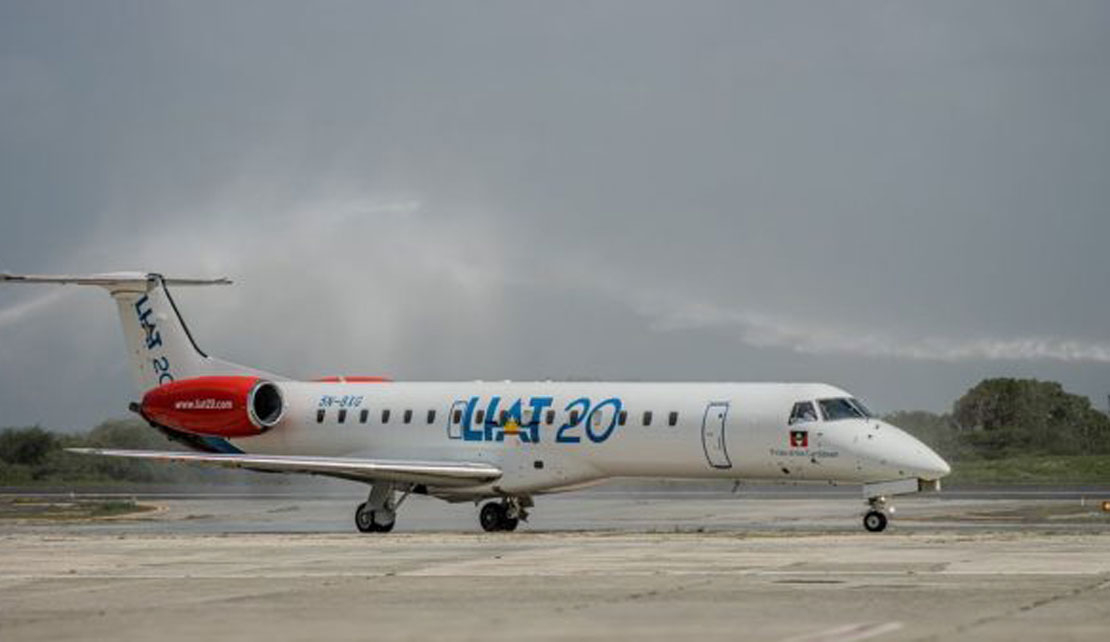ANTIGUA | Turbulence Ahead: LIAT 2020's Future Clouded by Owner's Legal Woes

ST JOHN’S Antigua, October 12, 2024 - In a twist that could send shockwaves through Caribbean airspace, the newly launched regional carrier LIAT 2020 finds itself in the eye of a storm.
The airline's majority stakeholder, Allen Onyema, CEO of Nigerian airline Air Peace, faces an expanding array of charges from the United States government, casting a long shadow over the fledgling carrier's future.

The U.S. Attorney's Office for the Northern District of Georgia didn't mince words in its Friday statement: "After allegedly using his airline company as a cover to commit fraud on the United States' banking system, Onyema, along with his co-defendant, allegedly committed additional crimes of fraud in a failed attempt to derail the government's investigation of his conduct."
The legal noose tightens not just around Onyema but also ensnares Ejiroghene Eghagha, Air Peace's Chief of Administration and Finance. Eghagha stands accused of participating in both the obstruction scheme and the earlier bank fraud counts. This widening net of allegations threatens to ground Air Peace's Caribbean ambitions before they truly take flight.
The timing couldn't be more precarious for LIAT 2020. The airline, rising from the ashes of its predecessor LIAT 1974, had only recently spread its wings across the Caribbean archipelago. With newly launched routes to Dominica, St. Kitts, and Grenada, LIAT 2020 seemed poised to breathe new life into regional connectivity. Prime Minister Gaston Browne of Antigua and Barbuda, the driving force behind the airline's resurrection, had hailed the partnership with Air Peace as a "significant milestone in regional aviation."
However, as legal storm clouds gather over Onyema, the future of this Caribbean air bridge hangs in the balance. The U.S. authorities' dogged pursuit of the Nigerian businessman raises questions about the due diligence conducted in forging this international partnership. It also casts a spotlight on the challenges facing small island nations in their quest to secure reliable air links – a critical lifeline for tourism-dependent economies.
The allegations against Onyema read like a high-flying financial thriller. U.S. prosecutors claim the Air Peace CEO orchestrated a complex scheme, moving suspicious funds from Nigeria to American bank accounts between 2017 and 2018. The money, allegedly disguised as aircraft purchase funds, flowed through a labyrinth of transactions involving Onyema's Atlanta-based firm, Springfield Aviation LLC.
"The diligence of our federal investigative partners revealed the defendants' alleged obstruction scheme, making it possible for the defendants to be held accountable for their aggravated conduct of attempting to impede a federal investigation," stated U.S. Attorney Ryan K. Buchanan, highlighting the gravity of the situation.
As Onyema and Eghagha continue to evade U.S. authorities, the case has already claimed its first conviction. Ebony Mayfield, an American woman described as a former "bartender, restaurant waitress, and nightclub dancer," was sentenced to three years' probation in September 2022 for her role in facilitating the alleged fraud. Mayfield's light sentence, attributed to her early guilty plea and cooperation, stands in stark contrast to the mounting charges against the Nigerian businessmen.

The unfolding legal drama threatens to clip LIAT 2020's wings just as it was gaining altitude. With a planned fleet of up to six aircraft, the carrier had ambitious plans to stitch together the Caribbean's patchwork of island nations. Now, those plans may be forced into a holding pattern as questions swirl about the airline's financial backing and leadership stability.
For Caribbean travelers, the potential grounding of LIAT 2020 could mean a return to the frustrating days of limited inter-island connectivity. One enthusiastic passenger, who had just experienced the airline's new service to Dominica, unknowingly captured the precarious nature of the situation: "I always love flying with LIAT." That sentiment, along with the hopes of seamless island-hopping, may be short-lived if Onyema's legal troubles force a premature landing for the fledgling carrier.
The repercussions extend beyond mere inconvenience for tourists. For small island nations, reliable air links are the arteries of economic lifeblood, facilitating not just tourism but also trade, medical travel, and family connections. The potential collapse of LIAT 2020 could leave a vacuum in regional air service, one that cash-strapped governments may struggle to fill.
When reached for comment, an Air Peace spokesperson attempted to downplay the gravity of the situation, dismissing the new developments as "a mere recycling of the same set of allegations." However, this stance seems to fly in the face of the additional charges levied by U.S. authorities. The spokesperson indicated that Mr. Onyema's legal team would provide a more formal response in due course, leaving stakeholders and travelers alike in a state of anxious anticipation.

Aviation experts in the region are watching the situation with growing concern. Dr. Kareem Yarde, a Caribbean aviation consultant, offers a sobering assessment: "The potential unraveling of LIAT 2020 could set regional air travel back by years. We're not just talking about inconvenience; we're looking at a possible economic crisis for smaller islands that depend on air links for tourism and trade."
The irony of the situation is not lost on longtime Caribbean residents. LIAT, often jokingly referred to as "Leave Island Any Time" due to its notorious delays and cancellations, has once again left its passengers and stakeholders in a state of uncertainty. However, this time, the joke has a bitter aftertaste as the region faces the prospect of severely limited air travel options.
As the legal drama unfolds in U.S. courts, Caribbean governments are faced with a difficult decision: wait and hope for a favorable resolution, or begin contingency planning for a post-LIAT 2020 scenario. Some are already exploring alternatives. St. Vincent and the Grenadines' Prime Minister Ralph Gonsalves hinted at ongoing discussions with other regional carriers, stating, "We cannot afford to be caught flat-footed. The mobility of our people is too important to leave to chance."
The allegations against Allen Onyema cast a long shadow not just over LIAT 2020, but over the entire landscape of Caribbean aviation. As U.S. authorities tighten their grip, the region holds its collective breath, wondering if this latest venture will be able to weather the storm or if it will become another cautionary tale in the turbulent history of Caribbean air travel.
Financial analysts are already speculating about the potential fallout. Maria Rodriguez, a senior economist at the Caribbean Development Bank, warns of the ripple effects: "If LIAT 2020 falters, we're not just looking at a transportation issue. We're talking about potential job losses, decreased tourism revenue, and a blow to investor confidence in regional projects. The economic implications could be far-reaching."
However, some see this crisis as an opportunity for a fundamental rethink of the region's approach to aviation. Captain Justin Mayers, a former LIAT pilot and now an aviation consultant, argues for a new model: "Perhaps it's time we moved away from the idea of a single dominant carrier. A network of smaller, more agile airlines might be better suited to the unique challenges of our archipelagic region."
As the legal proceedings against Onyema and his associates continue, LIAT 2020 finds itself in a holding pattern, its future uncertain. The coming months will be crucial, not just for the airline, but for the entire Caribbean. Will this be the final chapter in the LIAT saga, or can a phoenix rise once again from the ashes?
One thing is clear: in the high-stakes game of Caribbean aviation, the region can ill afford to have its wings clipped. As island nations wait with bated breath, the hope for reliable, affordable inter-island travel hangs in the balance, swaying precariously between ambitious dreams and harsh realities.
-30-
